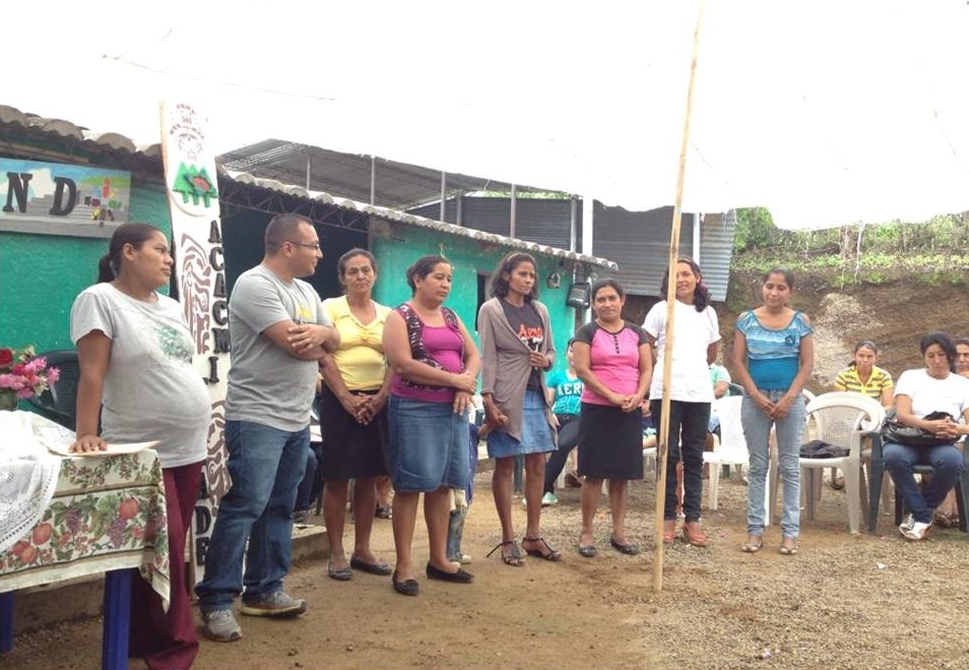Not All Leaders Wear Suits

I have seen lots of stock photos in my four years of doing freelance social media work, writing, and editing. If I use a search term like “leader,” I can predict the types of images I’ll find. The one above is an example.
But I can also predict the types of images I am not likely to detect:

Leading in the Mountains
I have been involved for years in a non-profit program that works to help people in poverty. When I participated in a blogger trip in 2014 and had an opportunity to meet participants in El Salvador up close, one of the most memorable activities was a meeting with a mothers' group high in the mountains.
The organization’s philosophy revolves around the concept that people benefit more from learning to help themselves (with support, as needed) than from handouts.
That’s where the mothers come in. As the organization found in a 2017 report, “mother and guardian empowerment” in topics such as decision-making, community involvement, and employment leads to “increased choices in life, positive change and greater personal control.”
The rural areas of El Salvador are far removed physically from typical corporate board rooms, but the qualities I saw among these moms paralleled what I would see in a C-Suite officer trying to make sense of corporate finance numbers for the upcoming fiscal year.
Accountability
When a mother’s group meets in El Salvador, the roll is taken scrupulously. A participant who does not show up and sign in is not eligible to participate in decisions or have a hand in how funding is allocated.
Doesn’t it work the same way in mainstream corporate America? Despite the fact that, as a Harvard Business Review article notes, “one out of every two managers is terrible at accountability,” the expectation is that accountability helps organizations maintain integrity and therefore increase their chances of being profitable.
Being Scrupulous about Setting a Good Example
The mother’s group was populated by mothers of varying ages, some still bearing and raising families, others farther along. These women were conscious of setting an example for one another (and for their children, some of whom were present at the meeting). The tone I got from them was, “as we go, so goes our community.” They meant business, and they loved their community.
Here in the US, employees also look up to leaders to set a good example. “[G]iving people a reason to believe and to follow," is how the American Management Association puts it, and I agree.
Helping Each Other’s Children
These women didn’t watch for their own children solely – every child was every mother’s responsibility, to an extent. It may be a slight over-generalization, but it is what I have observed consistently in Central America: the presence of a commodity (food, a job opportunity, other resources) is treated as a welcome benefit to all, not to just one.
I wish I could say this is true or something I have read or seen in the US, but we all too easily devolve into a me-first culture. In The Collateral Damage of Selfish Leadership, Dan Pontefract wrote, “But it’s the selfish leader [emphasis his] – those choosing to lead with a perilous fixation on power, pay and/or profit – that might be causing much of the disengagement and dissatisfaction in today’s organization."
Honoring the Culture
Our visit was a “special occasion” (that was humbling), so there was a gracious reception for us with local foods, fresh flowers, and unique decorations. The group didn’t try to adjust for what they thought we wanted; they brought out the best in their cultural expression.
This is a time of many mergers in the global economy. Merging two organizations can’t be easy; it occurs to me these newly joined organizations could take a page from the mothers of El Salvador and figure out what each partner’s roots are before digging everything up and trying to graft two companies together.
Moms Know
True leadership doesn’t require a fancy briefcase, a bespoke business suit, or an advanced degree from an Ivy League institution. Sometimes it shows up most when an El Salvadoran mom takes the lead.






